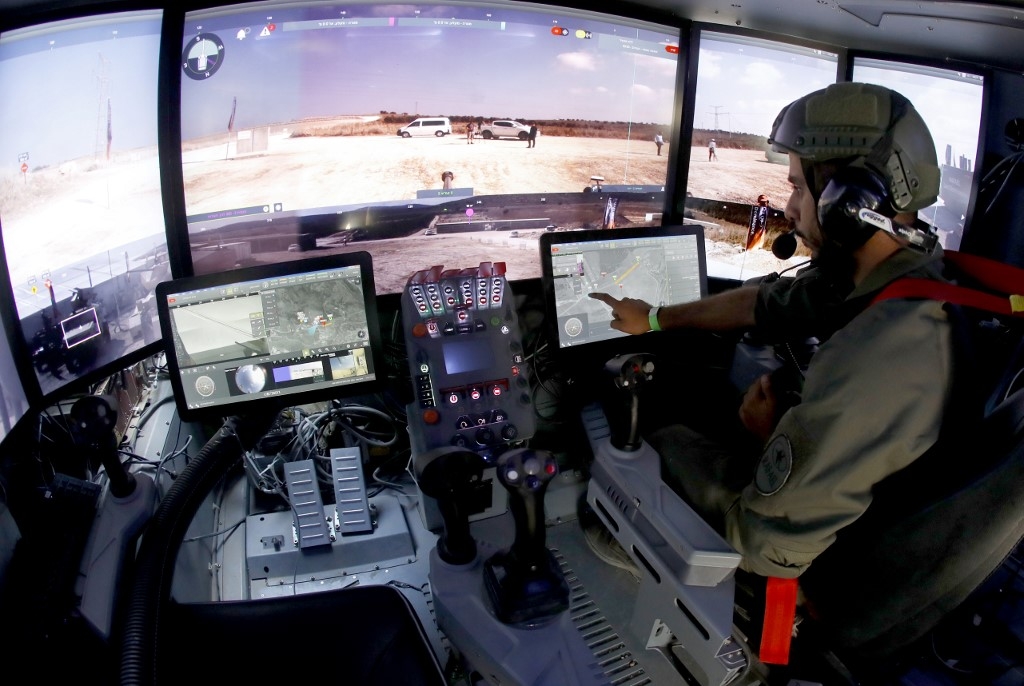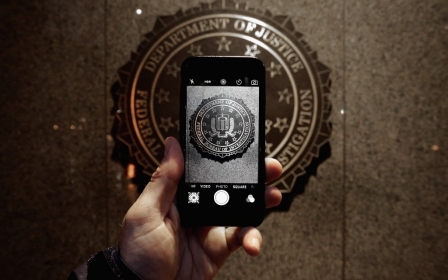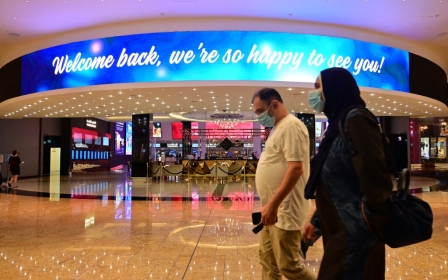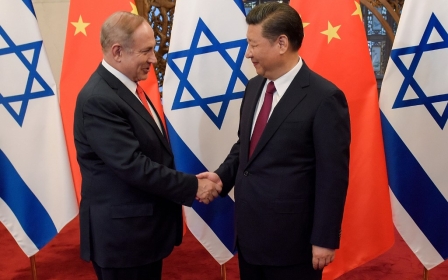Israel reports drop in arms sales, but exports of spy tech nearly double

Israel reported a drop in the exports of arms in 2019 but saw the sale of its controversial surveillance systems nearly double, Israel's defence ministry said in a new report.
According to Monday's report, Israel's defence exports amounted to $7.2bn in 2019, down from $7.5bn in 2018 and $9.2bn in 2017.
Retired Brigadier General Yair Kulas, who heads the ministry's International Defense Cooperation Directorate (SIBAT), said the drop in arms sales represented a "continuation of a stable trend", following several larger-than-normal weapons deals made in 2017.
"Despite the challenges and the fierce international competition, we succeeded in keeping Israel among the 10 leading defense exporters in the world," Kulas said in a statement.
Ministry officials said that 2019 was a difficult year due to a drop in oil prices, which negatively affected sales to some countries.
Unlike previous years marked by lucrative deals with India and South Korea, in 2019, Israel did not strike a single deal worth over $1 bn.
According to the report, the Asia-Pacific region remained Israel's largest arms buyer, accounting for 41 percent of total weapons exports. Europe followed at 26 percent and North America at 25 percent. Africa and Latin America each accounted for four percent of Israel's arms purchases.
At 17 percent, radar and electronic warfare systems made up the largest chunk of exports, followed by rockets and air-defence systems at 15 percent. Exports of drones - an area the United States is lagging in due to international weapons agreements - amounted to about eight percent of Israel's arms sales, while cyber and intelligence systems were seven percent, the report said.
While total defence exports have been on the decline in recent years, Israel has nearly doubled surveillance technology sales, which constituted 14 percent of its total exports in 2019, compared to eight percent in 2018.
Kulas confirmed exports of cyber-intelligence systems increased from the year before but would not give details regarding the specific countries buying the spy tech.
Spy tech and coronavirus
Israel's sales of such systems have been frequently slammed by human rights groups due to concerns that some countries are using the technology to spy on political dissidents and journalists.
On Monday, Amnesty International reported that Morocco had been using Israeli surveillance technology meant to track the spread of the coronavirus to spy on a local journalist.
Spyware called Pegasus, created by Israel's NSO Group, was "silently installed" on journalist Omar Radi's phone and used to repeatedly target the journalist, Amnesty said.
The rights group said Radi was being "systematically targeted by the Moroccan authorities due to his journalism and activism".
While Israel's NSO Group has pledged to stop its products from being used in human rights abuses, the technology remained in use after the company's promise, according to Amnesty.
"NSO Group clearly cannot be trusted. While it was undertaking a PR offensive to whitewash its image, its tools were enabling the unlawful surveillance of Omar Radi, an award-winning journalist and activist," said Danna Ingleton, deputy director of Amnesty Tech.
"Even after being presented with chilling evidence of its spyware being used to track activists in Morocco, it appears that NSO chose to keep the Moroccan government on as a customer. If NSO won’t stop its technology from being used in abuses, then it should be banned from selling it to governments who are likely to use it for human rights abuses."
In May, Israel's defence ministry said it was seeking to expand security exports, including systems for tracking civilians amid the coronavirus pandemic.
Despite mounting international pressure against the export of its surveillance technology, last month SIBAT published a request for proposals from civilian companies to provide business intelligence concerning exports to "all countries of the world, apart from states that are forbidden to trade with (Iran, Lebanon, Syria)," according to Israel's Haaretz newspaper.
The newspaper reported that defence sources have estimated that exports for Israel's surveillance technology are expected to take up a larger share of the country's defence exports in the future, particularly since the global economic crisis caused by the coronavirus pandemic is expected to trigger widespread protests, potentially destabilising some countries.
"The coronavirus crisis presented the global economy and the defense market with a new reality. We’re making adjustments in the defense ministry's operations and trying in a variety of ways to turn the crisis into an opportunity for the defense industry," Kulas said.
Amid SIBAT's call, bidding companies were asked to provide information on target countries' needs for biometric measures; civilian tracking systems; facial recognition tech as well as voice; image and licence plate recognition technology; cellular geolocation measures; and software for blocking or intercepting information online, Haaretz reported.
Middle East Eye propose une couverture et une analyse indépendantes et incomparables du Moyen-Orient, de l’Afrique du Nord et d’autres régions du monde. Pour en savoir plus sur la reprise de ce contenu et les frais qui s’appliquent, veuillez remplir ce formulaire [en anglais]. Pour en savoir plus sur MEE, cliquez ici [en anglais].






